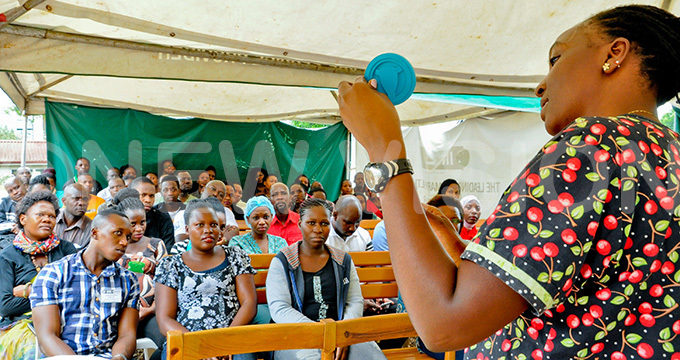Ugandans warned against self-medication
Mar 17, 2018
Kabuye said many Ugandans have resorted to self-medication especially using antimalarial, pain killers and skin lightening creams for women.

Due to the high cost involved in seeing a medical doctor, many Ugandans have resorted to self-medication, something that could put their lives in danger.
"The economic situation is hard, and that is why many Ugandans self-medicate themselves. But it is important to seek for proper medical care from trained health personnel for right treatment," said Dr. Ivan Kabuye, a general practitioner at International Hospital Kampala (IHK).
Kabuye said many Ugandans have resorted to self-medication especially using antimalarial, pain killers and skin lightening creams for women.
He explained that when one experiences body pains, it is a communication that something is wrong, and self-medication could mean over or under treatment, treating something one is not certain of, and delay in seeking for right treatment increases the burden of the disease.
"Self-medication does not only lead to drug resistance especially when a drug is used for a long time, but also means postponement of treatment for actual disease as it continues to grow, and this increases chances of death especially in illnesses like cancer," he said.
Kabuye also commented about Ugandans who still believe that malaria is caused by rain, noting that it is not true.
He explained that malaria which is spread by the bite of an infected anopheles mosquito is more spread during the rainy season, because mosquitoes have more bleeding grounds due to stagnant waters and puddles, and as a result mosquitoes increase in number.
Dr. Kabuye encouraged people to sleep under treated mosquito nets, close windows and doors early, get rid of any stagnate water sources at home as measures to keep away malaria.
Statistics from the Ministry of Health show that malaria is still the leading cause of death in Uganda, accounting for over 27% of deaths.
He was speaking during the end of the wellness week for the staff of International Medical Group (IMG) held at IHK on Friday. There were free health services like HIV/AIDS testing and counseling, breast, cervical and prostate cancer screening, family planning among others.
 Senior midwife IM, G Beatrice Kiyuba educating staff about different methods of family planning.
Senior midwife IM, G Beatrice Kiyuba educating staff about different methods of family planning.
The head of human resources at IMG, Aidah Naisanga said the wellness week was to promote a healthy team, adding that staff is the most valuable assets of any organization and as such, their well-being is very important.
Antenatal care visits
The senior midwife, IMG, Beatrice Kiyuba welcomed the move by government to increase antenatal care visits from four to eight times during pregnancy saying it will give health workers ample time to monitor expectant mothers.
"Every week or month, changes occur during pregnancy, and health workers need ample time to follow up these expectant mothers, monitor them so that in case a problem arises, it is attended to early and expectant mothers can have safe pregnancies. Therefore increasing antenatal care visits is a good move," she said.
